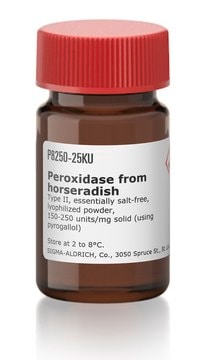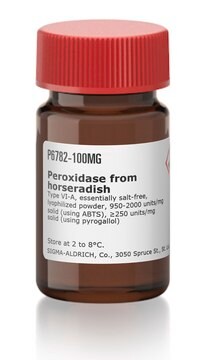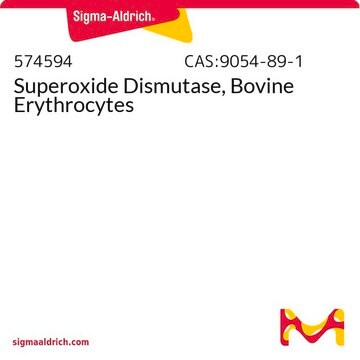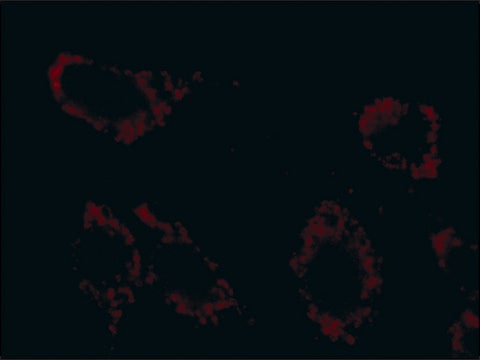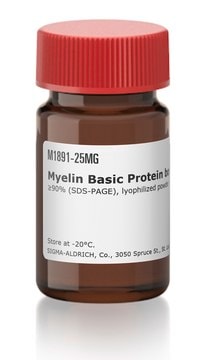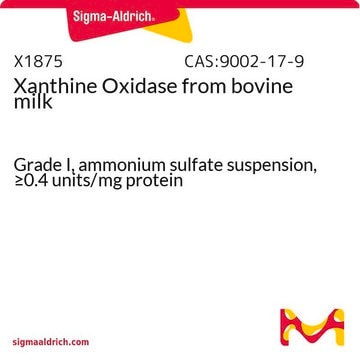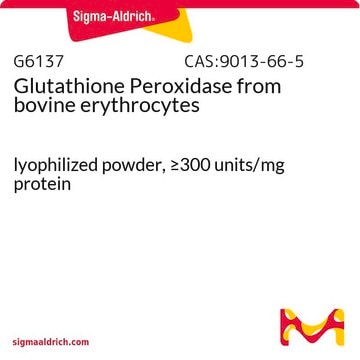S8160
Superoxide Dismutase from bovine liver
lyophilized powder, ≥1500 units/mg protein
Sinónimos:
SOD, Superoxide: superoxide oxidoreductase
About This Item
Productos recomendados
form
lyophilized powder
Quality Level
specific activity
≥1500 units/mg protein
mol wt
32.5 kDa
composition
Protein, ≥70% biuret
UniProt accession no.
storage temp.
−20°C
Gene Information
cow ... SOD1(281495)
¿Está buscando productos similares? Visita Guía de comparación de productos
General description
Application
Biochem/physiol Actions
Unit Definition
Physical form
Analysis Note
signalword
Danger
hcodes
pcodes
Hazard Classifications
Resp. Sens. 1
Storage Class
10 - Combustible liquids
wgk_germany
WGK 1
flash_point_f
Not applicable
flash_point_c
Not applicable
ppe
Eyeshields, Gloves, type N95 (US)
Certificados de análisis (COA)
Busque Certificados de análisis (COA) introduciendo el número de lote del producto. Los números de lote se encuentran en la etiqueta del producto después de las palabras «Lot» o «Batch»
¿Ya tiene este producto?
Encuentre la documentación para los productos que ha comprado recientemente en la Biblioteca de documentos.
Los clientes también vieron
Protocolos
Enzymatic Assay of Superoxide Dismutase
Separation of Superoxide dismutase
Chromatograms
application for HPLCNuestro equipo de científicos tiene experiencia en todas las áreas de investigación: Ciencias de la vida, Ciencia de los materiales, Síntesis química, Cromatografía, Analítica y muchas otras.
Póngase en contacto con el Servicio técnico